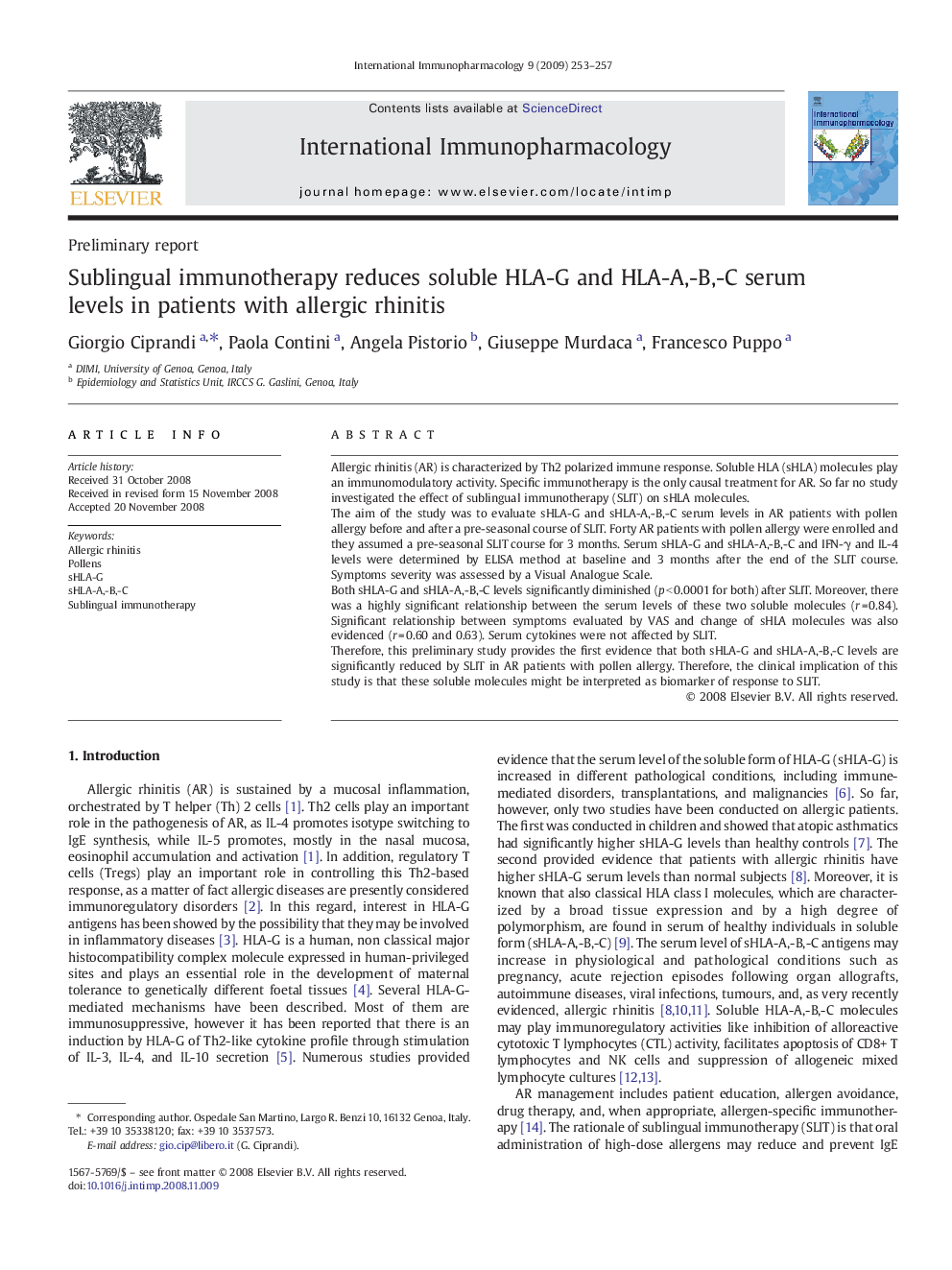| Article ID | Journal | Published Year | Pages | File Type |
|---|---|---|---|---|
| 2541500 | International Immunopharmacology | 2009 | 5 Pages |
Allergic rhinitis (AR) is characterized by Th2 polarized immune response. Soluble HLA (sHLA) molecules play an immunomodulatory activity. Specific immunotherapy is the only causal treatment for AR. So far no study investigated the effect of sublingual immunotherapy (SLIT) on sHLA molecules.The aim of the study was to evaluate sHLA-G and sHLA-A,-B,-C serum levels in AR patients with pollen allergy before and after a pre-seasonal course of SLIT. Forty AR patients with pollen allergy were enrolled and they assumed a pre-seasonal SLIT course for 3 months. Serum sHLA-G and sHLA-A,-B,-C and IFN-γ and IL-4 levels were determined by ELISA method at baseline and 3 months after the end of the SLIT course. Symptoms severity was assessed by a Visual Analogue Scale.Both sHLA-G and sHLA-A,-B,-C levels significantly diminished (p < 0.0001 for both) after SLIT. Moreover, there was a highly significant relationship between the serum levels of these two soluble molecules (r = 0.84). Significant relationship between symptoms evaluated by VAS and change of sHLA molecules was also evidenced (r = 0.60 and 0.63). Serum cytokines were not affected by SLIT.Therefore, this preliminary study provides the first evidence that both sHLA-G and sHLA-A,-B,-C levels are significantly reduced by SLIT in AR patients with pollen allergy. Therefore, the clinical implication of this study is that these soluble molecules might be interpreted as biomarker of response to SLIT.
